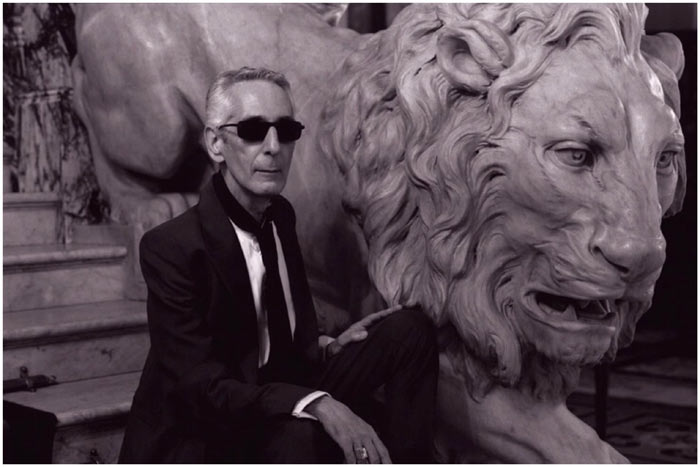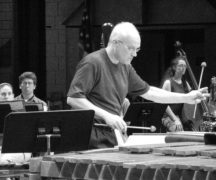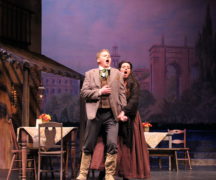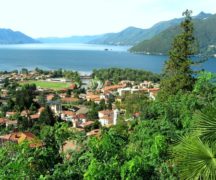By DAVID DUPONT
BG Independent News
Jazz guitarist Pat Martino has his own perspective on music.
Within a couple minutes of his telephone interview with BG Independent, he’s talking about the ancient Chinese text the I Ching, the Book of Changes.
Martino’s mind has a mathematical turn. He sees the guitar, he said, “as a matrix.”
“I teach it accordingly and hope through that I can open up other windows,” he said. “The guitar strings are six in number, and it’s horizontal and vertical in terms of its properties.” There’s the strings across and the fret bar down. “You literally have a matrix,” he said.
The I Ching, he explained, is made up of hexagrams of six broken or unbroken lines, each with 64 variations. “The I Ching is a psychologically study, a spiritual study,” he said. “The guitar is a musical study, but it’s the same matrix.”
And the performer is “a witness” in the middle of this complex of dualities – minor-major, loud-soft, fast-slow — looking back to the beginning and forward the end.
Martino will share his views on music and all the areas of life it opens up as the featured artist at this year’s Orchard Jazz Festival at Bowling Green State University. He’ll perform Saturday, Oct. 15, at 8 p.m. in the Donnell Theatre on campus and give a master class earlier that day at 2:30 p.m. in the Conrad Room in the Wolfe Center for the Arts. The fusion group Marbin will perform and teach on Friday. See the full festival schedule at: http://www.bgsu.edu/musical-arts/events/orchard-guitar-festival.html.
The son of a singer and guitarist, Martino entered that musical matrix as a youngster growing up in in the fertile Philadelphia music scene.
There he rubbed shoulders with jazz legend John Coltrane and worked with pop stars Bobby Darin and Frankie Avalon. He first went on the road with former schoolmate organist Charles Earland, planting the guitarist firmly in soul jazz. He moved to Harlem to immerse himself more in that scene. His reputation was such that he signed with Prestige as a 20-year-old where he was a pioneer in jazz-rock fusion.
But by 1976, Martino, then in his early 30s, was experiencing seizures that eventually required surgery in 1980. The surgery severely impaired his memory. He taught himself to play guitar again, emerging back on the scene in 1987, only to take another hiatus to care for his ailing parents.
He relaunched his career in 1994. In the past two decades he’s toured, recorded and taught, picking up honors along the way, including Grammy nominations and a Downbeat Reader’s Poll win as top guitarist in 2004.
Martino, 72, is back touring with the venerable organ trio formation. Part of it, he said, is practical. It’s easier and less expensive to travel with three people, and that means more opportunities to share his music.
Also, he has an abiding love of the Hammond B3 organ.
“The organist is in two places simultaneously” he said. The organist lays down the bass line while filling chords and melodies on top. The organ’s bass lines have their own distinct phrasing, different from what a stand up or electric bass can provide, he said. “The organ has its identity, its rainbow of colors. There’s a beauty to that, that cannot be achieved through any other instrument.”
Martino added: “I also think of the history of it, and it leads me back to the early of years of my career.” He recalls different neighborhood clubs that were set up for organ trios. “You were closer to the people,” he said. “People were dancing on the bar. When the group had such volcanic power, when it really took off, the entire audience was in touch with it, and you were all dancing together.”
These are details he’s reclaimed over the years, thanks in part, he said, to music.
He recalled about 10 years ago playing at the Blue Note in New York City. Between sets, he went back to the dressing room to freshen up. After washing his face, he stepped into the room, and there waiting for him was actor Joe Pesci and his manager.
Being a fan of Pesci’s films, Martino was delighted.
“You don’t remember me?” Pesci said.
Martino said, of course he did – some of his films were among his favorites.
“You really don’t remember,” Pesci repeated. “I remember what you drank in 1962.”
This was before Pesci was an actor. He was playing guitar and singing with a band out on Route 46 in New Jersey. After their gigs were over, they’d head to Harlem where Martino was playing with saxophonist Willis “Gator” Jackson at the legendary night spot Small’s Paradise.
They’d hang out, and Martino would always order a mint julep.
“Suddenly I got a flash in my mind’s eye and saw both of us standing at the bar, and quite a few things about that engagement that I’d forgotten.”





